Book Review: "The Creative Act" by Rick Rubin
5/5 - an awesome meditation on creativity blended with zen...
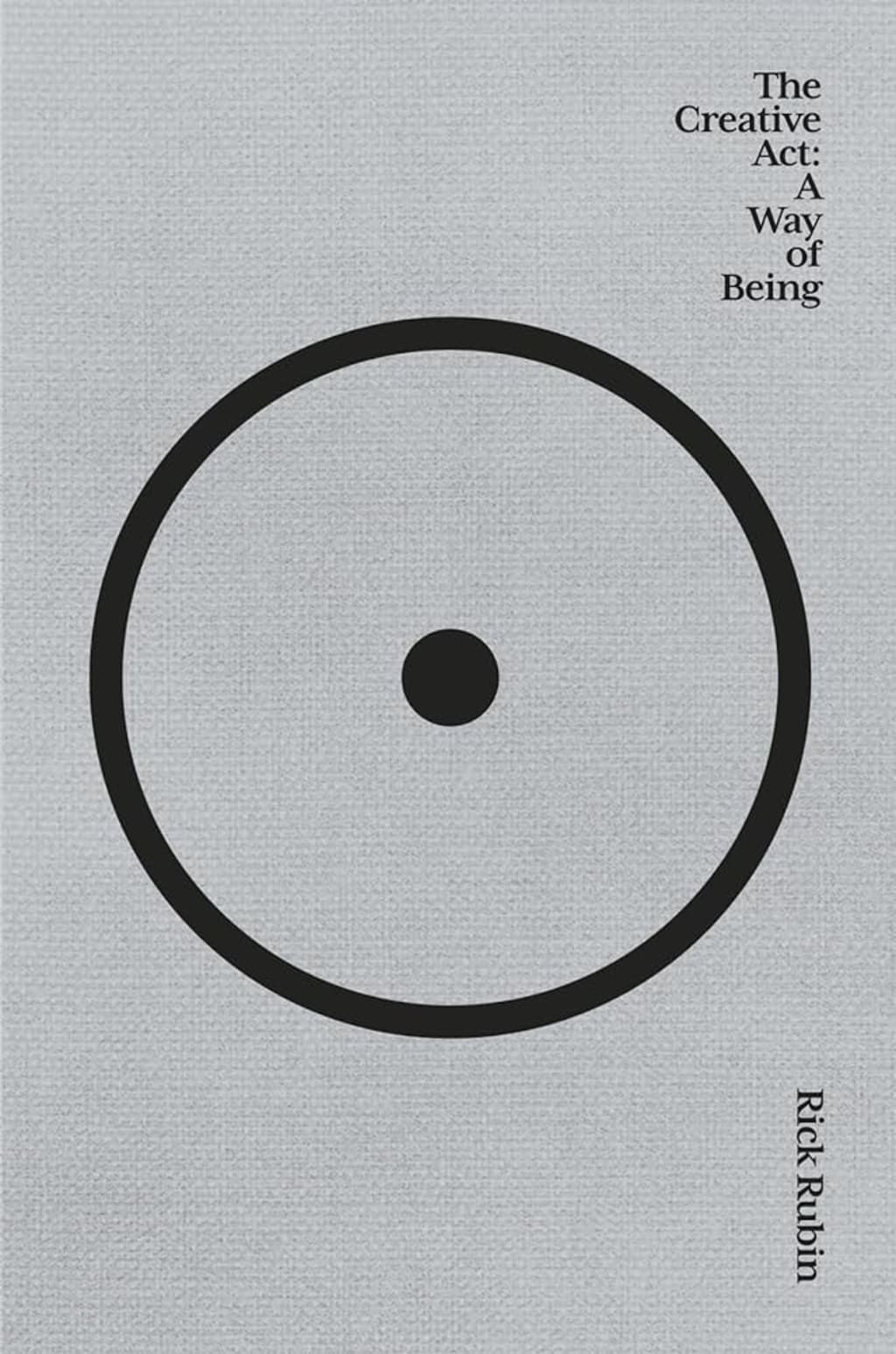
Full Title:'The Creative Act: A Way of Being' by Rick Rubin
“All art is a work in progress. It’s helpful to see the piece we’re working on as an experiment. One in which we can’t predict the outcome. Whatever the result, we will receive useful information that will benefit the next experiment. If you start from the position that there is no right or wrong, no good or bad, and creativity is just free play with no rules, it’s easier to submerge yourself joyfully in the process of making things. We’re not playing to win, we’re playing to play."
- The Creative Act: A Way of Being by Rick Rubin
Honestly, I have been waiting to read this for a while. It's been on my Amazon Wishlist and I really just forgot about it until someone mentioned my Amazon Wishlist to me. I thought about how overcrowded it would be after having book after book pushed into it and sometimes, the books were never bought purely because they had never actually come down in price enough - so I'd end up buying some other book instead. The Creative Act didn't come down in price, but it was priced well enough that it was the one that was going to exit the wishlist (dramatic music ensues). I'm glad I read it though because it feels like I definitely have to read it again. I don't think I have ever read a book so peaceful and so insightful at the same time.
According to this book, creativity belongs to everyone. This is something I wholeheartedly agree with. As long as you have something on your mind, you can create something from it. Each page of this book gathers its thoughts upon the altar of 'creativity is not exclusive to any single group of people' and that is something I think we can all enjoy. It is when Rubin starts to talk about different artistic mediums that this message is truly solidified in the book.
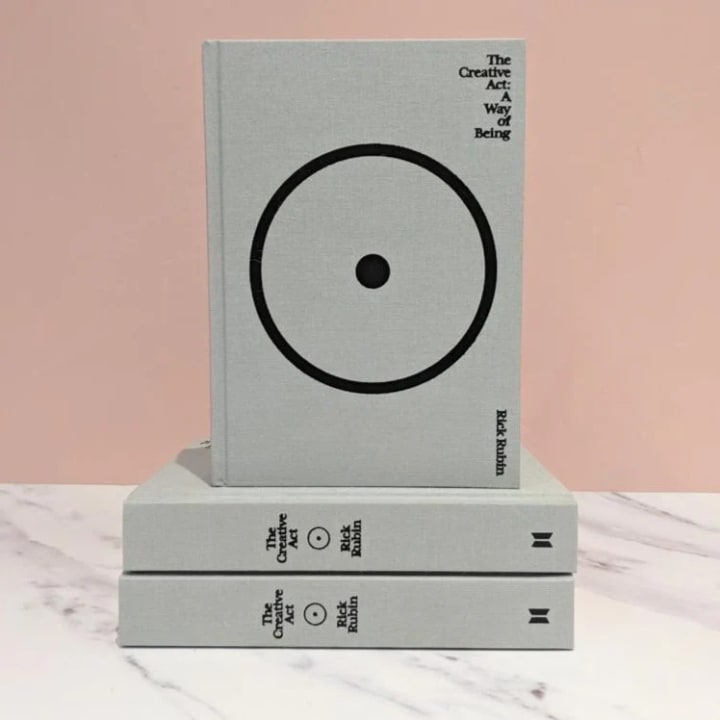
He speaks about creating music and changing the volumes in the artist's headphones in order to produce different sounds and volumes from their voice and the instruments. He also talks about how someone can write one line a day of a story or poem and though it doesn't have to be a perfect line, it is a step away from an empty page. The argument here as well as being for the inclusivity of creating is also for the act of doing whilst creating rather than musing through anxieties that Rubin refers to as harmful and often irrelevant.
There are lots of different references to how we can become more efficient whilst also retaining creativity, how we can get more done and get more actual work done. The author states that there are lots of things we should do in order to 'get rid of rules', but also times at which we should follow our own rules or even follow new rules to break tedious patterns. This is one of the ways we become more productive when we undertake a new project.
One thing I enjoyed about this book is that the ideas within it actually feel functional and realistic. I mean, except for the fact that if you were going to look at how to be 'creative' then you would probably look to a man who has had so much success with it that he's now written a book. Rick Rubin makes some excellent arguments for passionate creative projects and how we can ruin them by reading them over and over without actually editing them. Rubin states that we should only ever read our own work when we are actively working on it and at any other time, we should leave it alone. As a creative writer, I can tell you that though this is difficult it is not impossible. But it is very difficult.
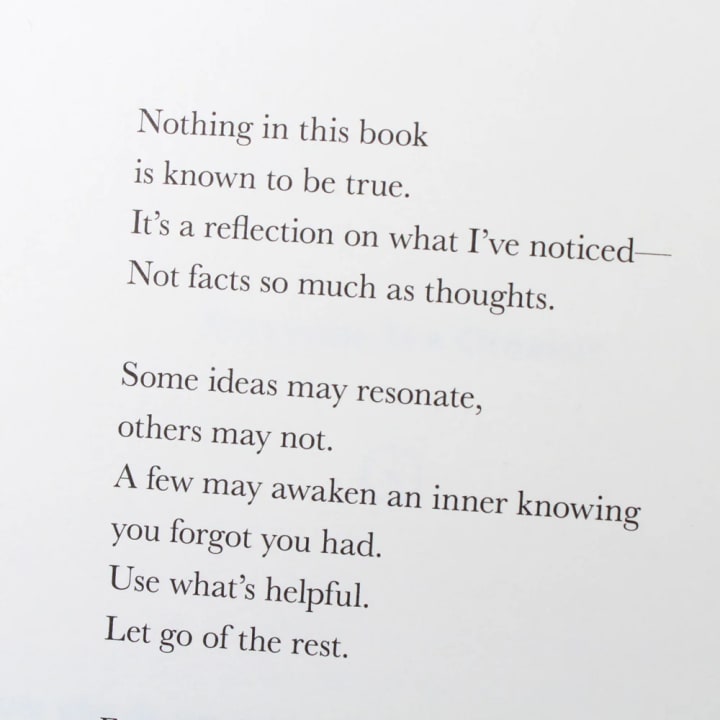
I was interested in his ideas regarding the difference or diversion from our own routines to create a new perspective on our creative project. For example: he talks about how if we always write on a laptop, we should try writing on a yellow legal pad (I think that might be a reference to Truman Capote who always wrote on yellow paper - he was also lying down and only ever wrote anything in pencil). I think that this might be one of the best pieces of advice I have ever known. Why? It forces us to think slightly differently.
From collaborations to how Sgt. Pepper's Lonely Hearts Club Band was based on the fact the Beatles adored Pet Sounds by the Beach Boys, meaning the Beatles album would have never existed without the album containing the song God Only Knows. From pushing into the unexpected and how to become great at what we do, Rick Rubin gives us an expansive meditation on our creativity and how to channel it to become more productive and more artistic in art. I think I might give this another read. It is truly fantastic.
About the Creator
Annie Kapur
200K+ Reads on Vocal.
Secondary English Teacher & Lecturer
🎓Literature & Writing (B.A)
🎓Film & Writing (M.A)
🎓Secondary English Education (PgDipEd) (QTS)
📍Birmingham, UK
X: @AnnieWithBooks
Enjoyed the story? Support the Creator.
Subscribe for free to receive all their stories in your feed. You could also pledge your support or give them a one-off tip, letting them know you appreciate their work.
Reader insights
Outstanding
Excellent work. Looking forward to reading more!
Top insight
Easy to read and follow
Well-structured & engaging content


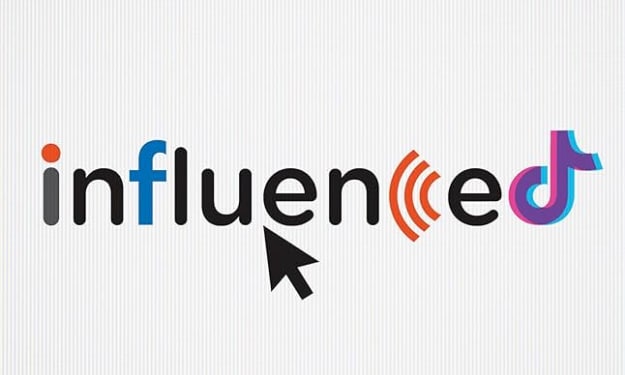

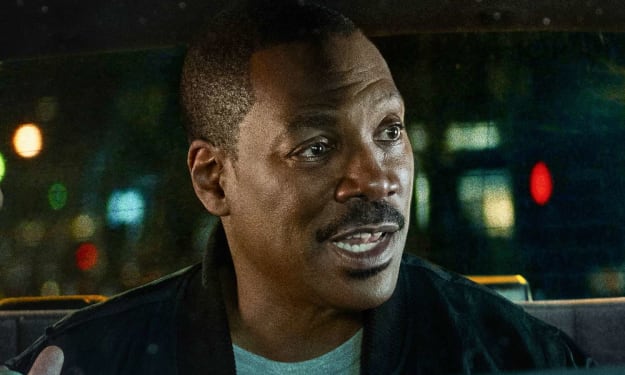

Comments (1)
I have been circling this book for a long time, and maybe now is the time to dig in... Thank you for this, Ms. K.!